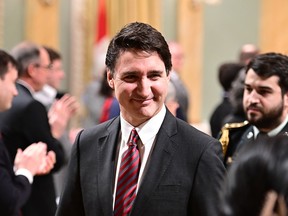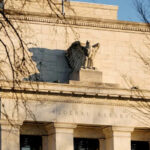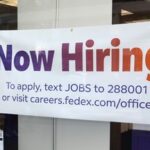Trudeau Leaves Canada in Suspense as Anxious Liberals Urge Him to Resign
The holiday period has come and gone, but the question on everyone’s mind in Canadian politics remains: when will Prime Minister Justin Trudeau finally address the nation?
For weeks now, Trudeau has been largely absent from public view, leaving many to wonder what his next move will be. The last time he was seen in public was on December 16th, when Finance Minister Chrystia Freeland resigned in a scathing letter that criticized him.
The Pressure Mounts
With polling numbers sliding further and the Conservative Party extending its lead going into an election year, lawmakers in Trudeau’s Liberal Party are growing increasingly anxious. Many are urging him to step aside, citing the need for a new leader to take the party forward.
A recent poll by Nanos Research found that if the current trend continues, the Liberals would lose most of their 153 seats. The party has launched pre-election advertising, focusing on concerns about Conservative plans to cut social programs. However, it’s clear that Trudeau’s leadership is becoming a liability for the party.
The Risks of Delaying a Decision
As Nik Nanos, founder of Nanos Research, pointed out, "The longer Trudeau waits to address both his party and the country, the more he risks provoking a Liberal rebellion." With his personal brand already damaged due to the long polling slump, the stakes are high for Trudeau.
If he drags out his resignation further, it could inflict even more damage on the party brand. The consequences of this are significant: if the current trend continues, the Liberals would lose most of their seats in an election.
The Difficulty of Transitioning to New Leadership
Even if Trudeau were to resign, the transition to new leadership would be far from smooth. The Liberal Party’s hold on parliament is precarious, with the three largest opposition parties promising to vote "no confidence" if a leadership contest were to take place.
If they do, it will trigger an election, and even if the Liberals are able to avoid one, the winner of the leadership race would have a relatively short period of time before being thrown into a national campaign. This is a daunting task, especially considering the party’s precarious position in parliament.
The Possibility of a Forced Election
In light of these challenges, some experts believe that Trudeau could resign but stay on as prime minister while a leadership race takes place. However, this scenario is far from ideal, and Nanos noted that "a politically wounded prime minister is not really in a very strong position to negotiate anything with someone like Donald Trump."
The Future of the Liberal Party
Regardless of what happens next, it’s clear that the Liberal Party faces a difficult road ahead. Even with a new leader, the party would need a major turnaround in public opinion just to save most of its seats, much less hold onto government.
As Nanos observed, "It very well may be that he will return them to the political wilderness at the end of the next federal election." This is a bleak outlook for a party that has dominated Canadian federal politics since the Second World War.
What’s Next?
Only time will tell what Trudeau’s next move will be. Will he finally address the nation and offer some hope for the Liberal Party, or will his absence continue to fuel speculation and anxiety among Canadians?
One thing is certain: the stakes are high, and the consequences of his decision could have far-reaching implications for the future of Canadian politics.
Sources
- Nanos Research
- Bloomberg.com
Related Articles



